Media bosses demand social media clampdown, Meta commercial deal renewal
The Australia parliament is being urged to stand up to social media giants and force Meta back to the Media Bargaining Code, with warnings of job losses.
The heads of Australia’s three largest commercial media companies have appeared before a sweeping parliamentary inquiry that will place the technology and behaviours of social media giants under the microscope.
The probe, tasked with investigating the “influence and impacts of social media on Australian society” comes amid growing community concern about the corrosive effects of online platforms, particularly on young people.
Appearing before the inquiry on Friday, traditional rivals News Corp Australia, Nine Entertainment and Seven West Media presented a united front, demanding further steps from government to clampdown on harmful content online and act on Meta’s decision to walk away from Australia.
“Social media has become a toxic force in our society with online scams and blackmail, cyber-bullying and trolling, deep fakes and political interference,” News Corp chief executive Michael Miller told the committee.
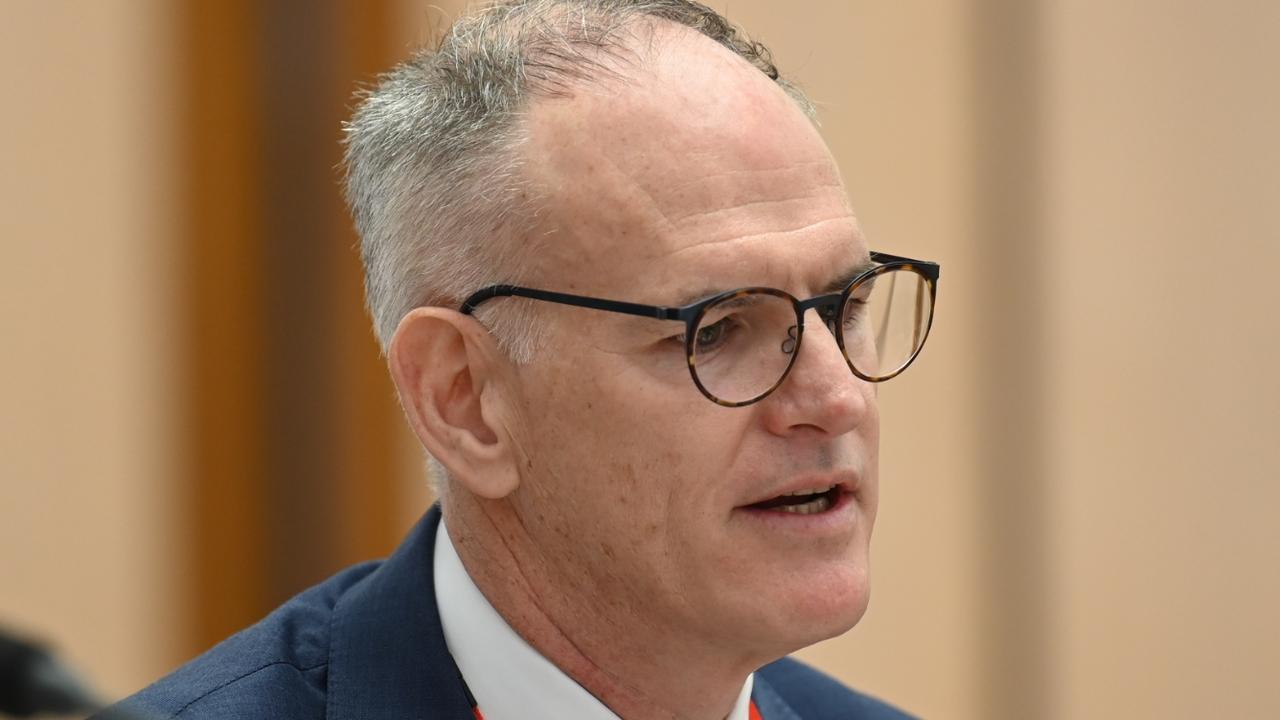
“It is also setting up a diet of damaging untruths, or threatening the democratic process by restricting Australians access to genuine news and information.”
The News Corp boss also reiterated calls for News Media Bargaining Code, requiring digital platforms Google and Facebook to pay local publishers for their news content.
Meta – the parent company of Facebook – announced in March it would not renew commercial deals with Australian media companies under the Code at an estimated cost of $70m to local publishers.
“If we want to bring the social media giants under control on an issue as big as the lives of our children, then we cannot surrender on a smaller but also incredibly important matter like the Media Bargaining Code,” he said.
“If we cave in on this, we cave in on everything.”
Mr Miller said the claim by Meta and other social media companies that their users were not interested in news was “absolutely not true”.
“Meta says that news makes up less than three per cent of what people see on Facebook. That is also not true,” Mr Miller said.
“Actually 48 per cent of Australians get their news using a Meta platform.”

Nine Entertainment boss Mike Sneesby agreed that the amount of news consumed via social media was far greater than social media companies had reported.
“For Nine the consumption of our news content on social media platforms has never been greater,” Mr Sneesby said.
“The abandonment of the News Media Bargaining Code by platforms such as Meta will have an immediate and detrimental impact on our newsrooms around the country.”
Mr Sneesby also drew attention to the negative impact of social media on news publishers beyond audience and revenue.
“Journalists at Nine and other outlets experienced targeted and vicious trolling on an all too regular basis, with female presenters often being the subject of the worst online bullying,” he said.
“Something that is well documented to occur far more broadly, particularly impacting our children and teens.
“Too little has been done by [Meta] to stop this behaviour.”
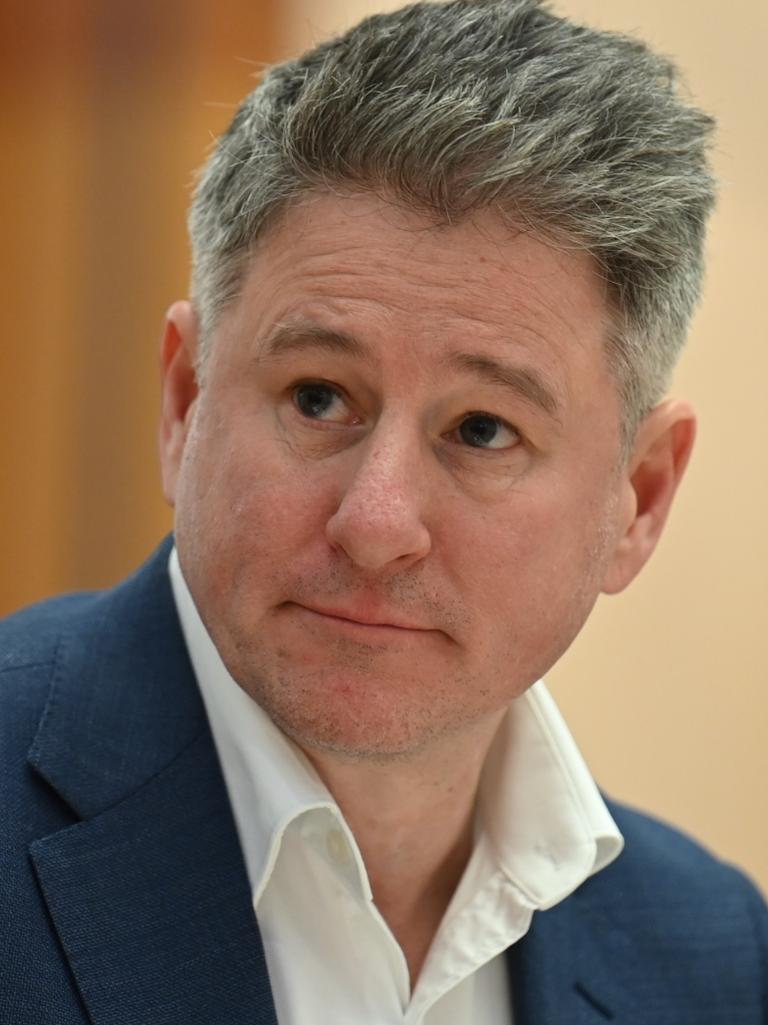
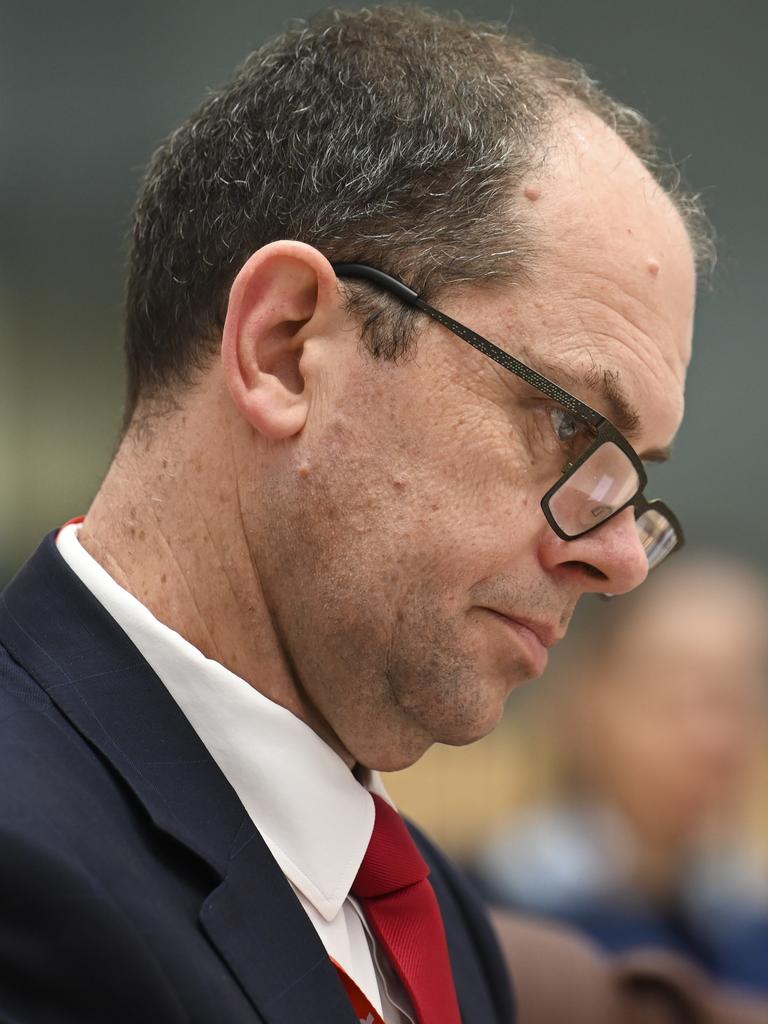
Also appearing before the inquiry, Seven West Media chief Jeffrey Howard contrasted the minimal regulation that social media platforms faced compared with local publishers.
“We are regulated. We operate within codes of compliance,” Mr Howard said.
“If our audiences don’t like our content, they can complain. Our news has to be balanced and accurate and there are consequences if it isn’t.
“I don’t remember anyone seeking apologies or compensation from the social media platforms after the Bondi Westfield tragedy – we did both,” he said, referring to an inaccuracy in Seven’s reporting of the event.
Mr Howard told the committee that social media companies were “dominating” the advertising pool, with most of their revenue then going offshore.
“We compete aggressively for what’s left and have restrictions on what and where we can place that advertising,” he said.
“We pay tax in Australia and we hold each other to account.”

Remove platform-specific exemptions, media bosses demand
Social media platforms currently exempt from the Code, including Instagram, TikTok, YouTube, X and WhatsApp, should be required to negotiate with local publishers, the bosses of Nine, Seven and News Corp have demanded.
“Quite clearly over that period of time, Instagram, mostly through video growth, has grown to a scale of significance,” Mr Sneesby told the committee.
“TikTok has also done so, I think dangerously, in a very young skewing audience, where they are monopolising a big part of the most vulnerable audience in Australia.
“Most certainly the landscape has developed in a way that we should be looking to include those platforms.”
With new platforms coming to market, Mr Miller called for parent companies, rather than individual sites to be designated.
“I would be looking at the top code, not just the assets below,” he said.
Mr Howard shared the views of his colleagues, arguing significant growth in rival sites since the inception of the Code in 2021 warranted further examination.
“There needs to be a review of it,” he said.
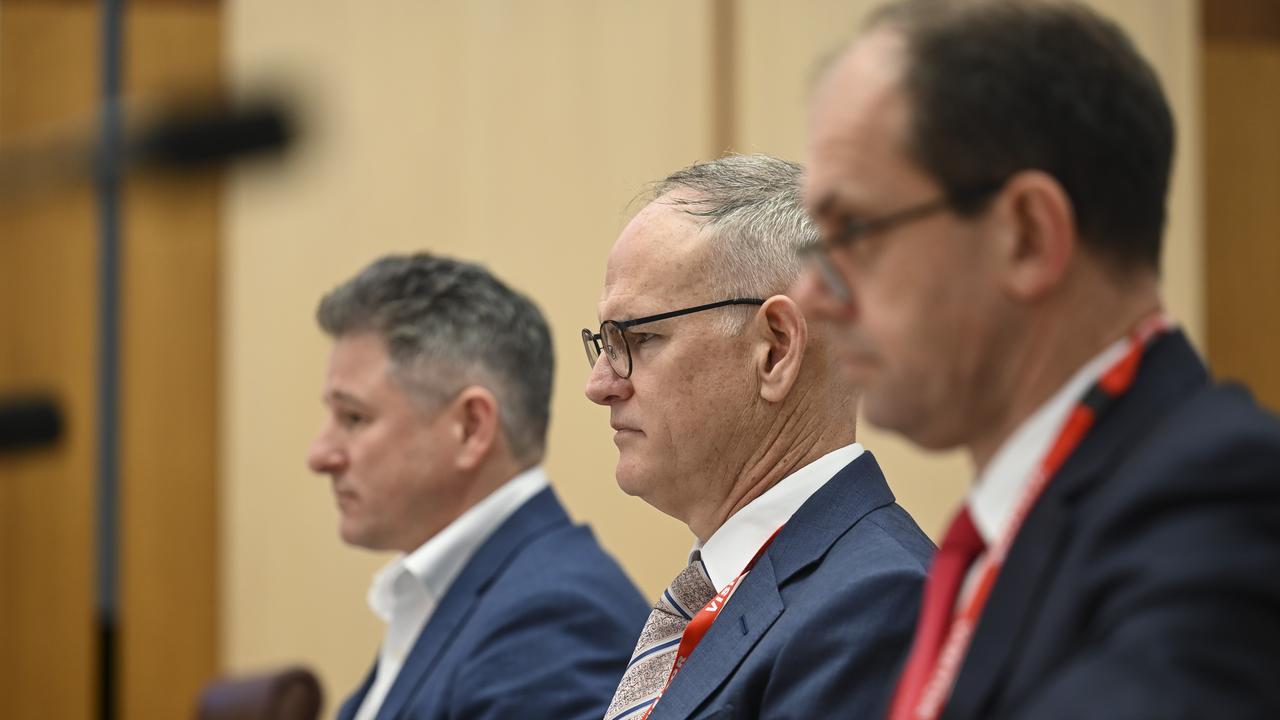
Media bosses back under-16 social media ban
The heads of the commercial news organisations were similarly united in their receptiveness to a Coalition proposal that would prohibit individuals under 16 from accessing social media sites by implementing age verification technology.
Pointing to News Corp’s “Let them be kids” campaign, which has highlighted the mental ill health and physical harms linked to social media, Mr Miller said the company supported a ban.
“Our mastheads are very clear on the fact that the age limit should be raised,” he said.
Mr Sneesby said the measure needed to be accompanied by further regulation on tech platforms.
“It is one of the potential ways of protecting those younger audiences in the younger population,” he said.
“But it also puts that back to a certain degree on the Australian public rather than imposing the appropriate regulations for the platforms themselves to ensure that they are acting in the best interest of the Australian population.”
“I agree with both of my colleagues on this,” Mr Howard said.
“Meta doesn’t care about communities”: ACM
Australian Community Media (ACM) managing director Anthony Kendall accused Meta, and the rise of other digital platforms, of decimating revenue streams needed to fund quality journalism.
The publisher, whose mastheads include The Canberra Times, The Newcastle Herald and a number of small regional papers, would be forced to make “hard decisions” on the future of its newspapers and the jobs they supported.
“Make no mistake, Meta’s decision will mean ACM and many other publishers will be forced to close titles,” Mr Kendall told the parliamentary inquiry.
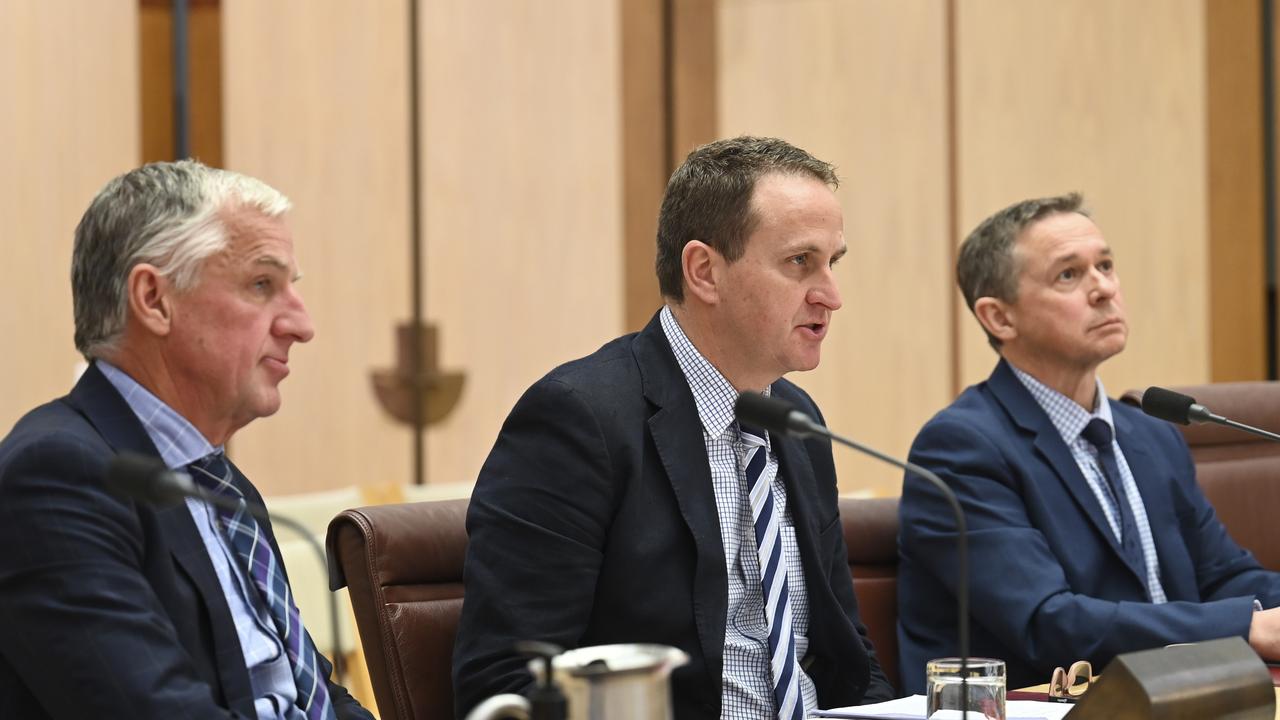
The ACM boss predicted Meta’s decision to pull out of the Code would create more “news deserts”, robbing communities of independent, credible and trusted voices.
“Meta doesn’t care about any of this. It doesn’t care about local communities. It doesn’t care about democracy and it doesn’t care about the safety and wellbeing of our children,” Mr Kendall said.
“We don’t think it’s an overstatement to say that Meta, and other social platforms. are tearing the fabric of our communities apart and destroying a generation of our youth.”
Mr Kendall proposed taxing the Facebook parent at 20 per cent of revenues, rather than profits, as a means to raise taxpayer funds for mental health services and support public interest journalism.
“That way Meta might finally do something that’s good for this country,” he said.
‘Darker waters’: eSafety boss draws comparison on swim safety
Also appearing before the committee, eSafety Commissioner Julie Inman Grant spoke of the need to view online protections for children in a similar manner to protocols on swim safety which were built on “many years of advocacy, collaboration, education and legislation”.
“We need to take a similar approach to ensuring online safety for our children,” Ms Inman Grant said.
“What eSafety has sought to do through education and regulation is to build a model that recognises children can wander into harm’s way without responsible adults’ knowledge or protection.
“Just like surfing in the ocean or swimming in a pool, we know that social media has many benefits for young people.
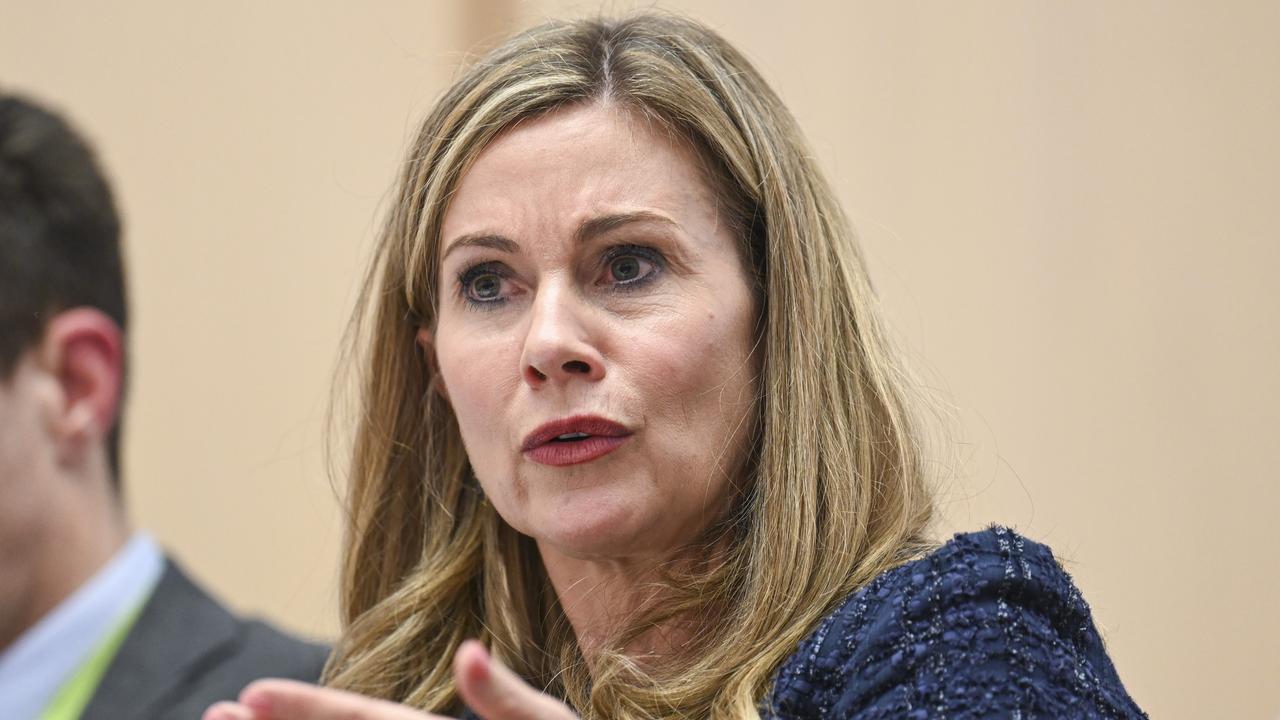
“But social media also brings risks that parents, carers and our young people are rightly concerned about, the darker waters that may hide predators or algorithmic rips.”
Ms Inman-Grant said there needed to be a continued focus on keeping children safe on the platforms and sites they currently used.
“This is why a nationally co-ordinated holistic approach is vital – ensuring our children swim between the flags and our life guards patrol the sands, letting our kids reap the benefits of connection while minimising the risks today and into the future,” she said.
Ms Inman Grant also highlighted new enforceable mandatory standards, which were submitted to the parliament earlier on Friday, would require tech companies to detect and remove videos of torture and rape spreading on messaging and cloud storage services.
Originally published as Media bosses demand social media clampdown, Meta commercial deal renewal




